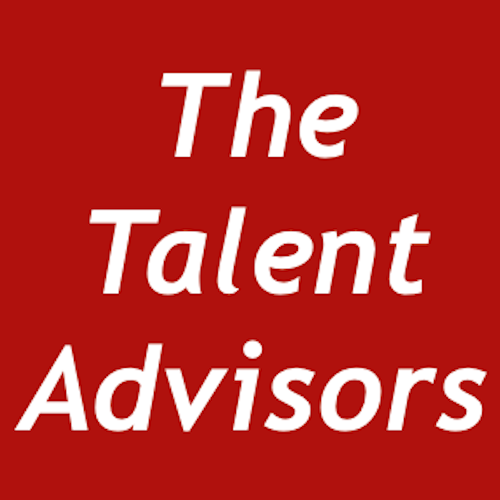Responsible Artificial Intelligence
This article is part of our Mentor-Coach Reading List series. Join the mailing list to receive this and more.
How is AI shaping our understanding of ourselves and our societies? What are the next big positive breakthroughs? How will AI change the way we govern, learn, heal, work and live? How ethical and responsible will it be? And what does this even mean? In a world where machines are smarter than people, what will it be like to be human? How can societies and institutions make AI a partner in shaping a better world?
Happy reading!
Here is more information about the Series 11 selection of books.
All-in On AI: How Smart Companies Win Big with Artificial Intelligence (Harvard Business Review Press, January 2023) by Tom Davenport (a research fellow at the MIT Initiative on the Digital Economy) and Nitin Mittal (a principal with Deloitte Consulting with a focus on US Artificial Intelligence (AI) Strategic Growth). Looks at artificial intelligence at its cutting edge from the viewpoint of established companies like Anthem, Ping An, Airbus, and Capital One. Filled with insights, strategies, and best practices, All-In on AI also provides leaders and their teams with the information they need to help their own companies take AI to the next level. If you're curious about the next phase in the implementation of artificial intelligence within companies, or if you're looking to adopt this powerful technology in a more robust way yourself, All-In on AI will give you a rare inside look at what the leading adopters are doing, while providing you with the tools to put AI at the core of everything you do.
Checkmate Humanity: the how and why of responsible AI (Global Stories, October 2022) by Dr Sam Kirshner, Prof Richard Vidgen, Dr Catriona Wallace. The authors are high profile activists in the Responsible AI field and bring their considerable experience to this book so that it is suitable for executives, boards, managers, leaders, academics, start-ups, investors, students and just about anyone who needs to know how to do AI responsibly. AI is changing the way individuals, organisations, governments and society work and live. But will AI be ethical and how responsible will it be? And what does this even mean? The authors set out to answer these questions and maps the potential harms that AI may cause from individual harms right through to full existential risk. They introduce the world’s first taxonomy of AI harms and then offer solutions and recommendations so that we can build a Responsible AI future.
The Atlas of AI: Power, Politics, and the Planetary Costs of Artificial Intelligence (Yale University Press, June 2021) by Kate Crawford. What happens when artificial intelligence saturates political life and depletes the planet? How is AI shaping our understanding of ourselves and our societies? Drawing on more than a decade of research, award‑winning scholar Kate Crawford reveals how AI is a technology of extraction: from the minerals drawn from the earth, to the labor pulled from low-wage information workers, to the data taken from every action and expression. This book reveals how this planetary network is fueling a shift toward undemocratic governance and increased inequity. Rather than taking a narrow focus on code and algorithms, she offers us a material and political perspective on what it takes to make AI and how it centralises power. Highlights what is at stake as technology companies use artificial intelligence to reshape the world.
Converge: A Futurist’s insights into the potential of our world as technology and humanity collide (Major Street Publishing, October 2022) by Dr Catherine Ball. What are the next big technology breakthroughs that have the potential to positively shape our world? As we face challenges globally on multiple fronts, it’s refreshing to hear the positive voice of scientific futurist Dr Catherine Ball. In Converge she presents insights into how technology and science are providing answers to many of the challenges the world is facing today – food shortages, war and conflict, the decline in local manufacturing, health and ageing, and global warming – and asks why we are not embracing these technologies more widely. This book helps understand technological advancements and explores the role we all have in learning more, owning the conversations, and determining what we want technology to be.
The Business Case for AI: A Leader's Guide to AI Strategies, Best Practices & Real-World Applications (Opinosis Analytics, April 2022) by Kavita Ganesan. An AI strategist, educator, and consultant, she provides a good overview of what’s true, what’s hype, and what’s realistic to expect from AI and machine learning systems. Useful is how to spot lucrative AI opportunities and capitalise on them in creative ways. It gives managers ideas for applying AI in a business to increase revenues, optimise decision-making, and eliminate business process inefficiencies. She shares pragmatic advice on the Three Pillars of AI success, a systematic framework for testing and evaluating the value of AI initiatives.
The Age of AI: And Our Human Future (Little, Brown and Company, November 2021) by Henry Kissinger, Eric Schmidt and Daniel Huttenlocher. “While the advancement of AI may be inevitable,” the book posits “its ultimate destination is not.” By asking necessary questions it guides us to think about how AI can impact the human future. The implications of AI are wide-reaching and across many fields, transforming how humans are experiencing reality and subtly altering our Enlightenment-era understanding of human reason, knowledge, and choice. In a world where machines are smarter than people, what does it actually mean to be human? How can societies can make AI a partner in shaping the future?
Discover the support we offer executives, new and aspiring directors. About Dianne Jacobs | Discover how to get On Boards or Next Level | Join the Mailing List

